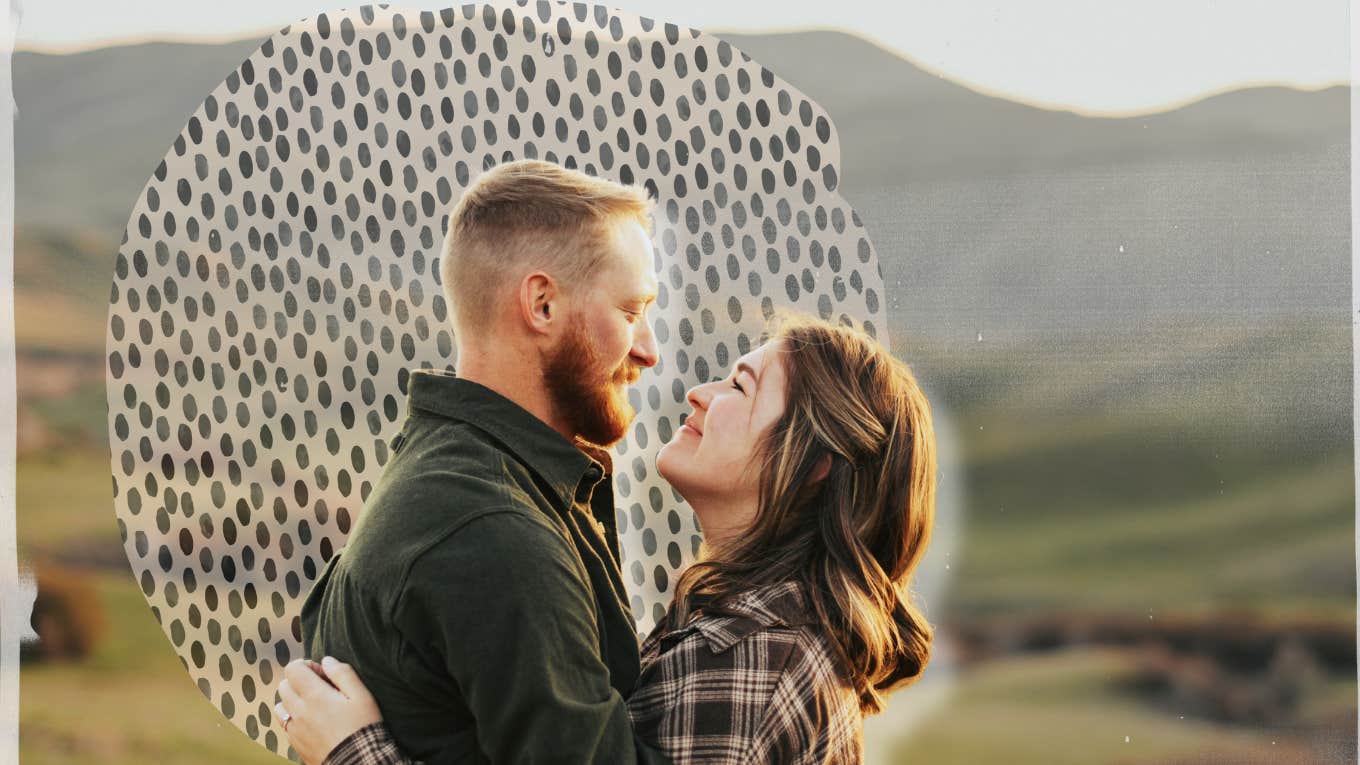5 Small Actions That Help You Feel Safe Falling In Love With Someone New
The ability to stay present to another’s raw vulnerability is something that many people cannot do.
 Jenny Uhling | Canva
Jenny Uhling | Canva When you identify and express your emotional vulnerabilities, you grow stronger and develop an enriched understanding of yourself. This requires we find a place, time, and person to come clean with and share our truth.
The sooner you share an emotionally charged life situation, the sooner you will reclaim the energy that is attached to keeping it hidden and unresolved — whether it was you doing or something done to you, even if unintended. You have to pick your time, place, and person to share your truth with. It is similarly freeing when we can share what we haven’t shared with someone we trust. This is key to falling in love with someone new.
When we share our most vulnerable truth or someone else shares theirs with us, we are part of a vital transformative experience that brings us closer.
Here are five ways to feel safe when you're falling in love with someone new.
1. Test the waters slowly.
You really cannot trust everyone, but you can trust some. And a few are all you need. Educate those whom you can trust to be confidential. They don’t have to fix you. They need to hear you.
2. Make a list of your concerns.
Write about your shame, blame, scars, or unshared dreams and aspirations first to yourself. This will help desensitize you to the story you wish to tell. Then, have a live conversation about some aspect of this journaling with a trusted other, where you share in the moment — rather than recounting pre-meditated points. Doing so will help you hear yourself and be heard by another who can hold what you share and keep it sacred.
If this is a love relationship the intimacy this builds is profound, and can even help prevent further heartbreak from misunderstandings.
3. Consult with a professional.
This is someone you can speak to, for example, a therapist, counselor, coach, or minister. But research them first! Be sure they have the appropriate credentials and a good reputation with other clients.
 photo: KIRAYONAK-YULIYA
photo: KIRAYONAK-YULIYA
4. Envision your potential.
Imagine the space in your heart and soul you will open if what you have hidden in the darkness is brought into the light. Who will you become? How will you live? Are you brave enough to take the first step?
5. Claim your place at the fire.
A metaphoric phrase Richard Leider uses to describe finding our place. Figure out who you can be in conversation with as a support group, whether for mentoring or fun and true friendship. Remember not to take anyone else's feedback or reactions personally. Opinions are just that. They are not the truth but someone’s perspective, just as your view is.
Media, marketing messages, and many famous people have been caught in lies and peccadillos, so you should look elsewhere for models of honesty and authenticity. None of us is perfect. We all make mistakes, have unexpected hurts, and sometimes make unhealthy, unwise, or unethical choices. Then, we must pay the consequences and take responsibility.
As a coach and mentor, I believe in my clients so they can say what they have not said, dream what they have not dreamed, and feel what they have not felt. I encourage them to do it out loud in a relationship with a confidential partner who asks to hear and listens with a deep focus and a trusting presence. People must have boundaries, which means not being raw with your emotions all the time. Just like we wear clothes most of the time, when we are emotionally vulnerable, we do so within our comfort level of place and person.
Sure, you might have skinny-dipped, walked on a private beach in less than a swimsuit, or dipped in a hot spring somewhere au naturale, but only with people you trusted. And yet, wasn’t there a sense of exhilarating freedom when you broke those boundaries and did that?
The ability and willingness to stay present to another’s raw vulnerability is something that many people cannot do. That's why taking it slow and being cautious — but not paralyzed — is vital.
Find your trustworthy few, and cherish them. And you can return the favor by being a committed listener to others — including the person you're in love with.
Dr. Pat Williams is a psychologist, Master Certified Coach, and Board Certified Coach.

